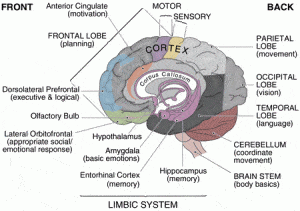With the upcoming holiday season around the corner, I thought it might be helpful to share a few thoughts around spending habits and our relationship to money. Christmas is a time of year when many of us can feel pressured to provide and ‘prove’ our worth in a strictly material way. Don’t get me wrong – there is absolutely nothing wrong with giving. In fact, I feel that it is an inherent part of our well-being. The act of both giving and receiving connects us to one another in a deep and meaningful way. However, it is important that we know both when and how to give, and that we are aware of our motives behind our giving. While there are so many ways that we can give – our time, our concern, our understanding – during the holiday season we often link our giving to a tangible gift. When sorting out healthy from unhealthy giving, you may wonder: Am I giving as a true expression of my carin g or out of obligation? Am I giving to impress someone so they will think more of me? Can I afford this gift or will it create financial strain in my life? Do I believe the value of the gift equals the amount of love I have for that person?
These important questions can help us understand our spending at a deeper level. When examining your spending habits, I believe it is important to reflect on what you learned growing up. Did your family celebrate birthdays and holidays by lavishing expensive gifts on others? Or were there scarce resources – both emotionally and financially – that meant that special occasions went unnoticed? Or was your family practical, spending within their means and providing the more important gifts of love and positive regard throughout the year. What we learn early on can set in motion powerful patterns in our lives that continue to unconsciously replay themselves. I know that when I was growing up there was a lot of competition for scarce emotional and financial resources. My mother lived on credit and spending was undoubtedly a way that she could make herself feel better. It seemed every time we turned around she w as buying more furniture! To her things represented status – it was important to “look good” in order to “feel good”. For much of my adult life it was ‘normal’ for me to be living on credit. When I didn’t have enough money to buy what I wanted, I would borrow it – from the bank, from family or friends. While it was extremely stressful, it was the only template I had for managing my money (or more accurately – other’s money). The way we relate to money can tell us a lot about our values, priorities and our sense of security.
Julia Cameron & Mark Bryan’s book “Money Drunk, Money Sober: 90 Days to Financial Freedom” is a great resource for anyone wanting to learn more about their money patterns and how to grow toward financial solvency. They state that for alcoholics and addicts, money is often the last frontier of change and I’d like to share in this newsletter some of the knowledge they provide. When we are out of balance with our spending or our relationship to money, we can be “money drunk”. In other words, we use money, much like we would use alcohol or drugs or the internet, to soothe our uncomfortable feelings. Just as there are many types of alcoholic drinking patterns, there are different spending patterns.
The Compulsive Spender
“When the going gets tough, the tough go shopping” is an expression that fits this type of spender. Under stress, shopping relieves anxiety and provides a temporary ‘high’ in the form of new things. According to Cameron & Bryan, more than any other form of money addiction, the need for compulsive spending is easily viewed as an attempt to block feelings of inadequacy and insecurity. It is also a way to avoid feeling ashamed. If I can buy something when I want it, rather than feel powerless, I can feel powerful; rather than feel less-than I can feel better-than. I can feel more beautiful, sophisticated and ‘cool’. I can walk away – for the moment – from any discomfort arising inside me that indicates ‘I’m not good enough, smart enough or rich enough’. Many compulsive spenders are more comfortable with crisis management, finding the calm of ordinary life “boring”. Unfortunately, the lie that the credit card debt – on all the cards – ‘is no big deal’ continues to fuel an inner state of stress that takes its toll on individual health and well-being. All addiction is fueled by a lie. It is only when we are able and willing to face the truth that we can find a way out. In order for compulsive spenders to recover they must begin to make the emotional links to their spending and commit to healing uncomfortable states rather than medicating through buying.
- Do you impulsively buy things you don’t need or can’t afford?
- Do you shop to alter your moods?
- Do you play credit card roulette, filling up one and then moving on to another?
- Do you worry more about having money to spend than how to make it?
If so, you may be a compulsive spender.
The Big Deal Chaser
Just as the drink is the solution for the alcoholic’s problems, The Big Deal Chaser believes that “this is the one” that’s going to make them rich and famous. This is a person driven by grandiosity, unable to see the wreckage they are creating in the futile attempt to “win big”. The motive underlying their desperation is the lie that they can avoid the normal experiences of emotional discomfort and insecurity. Cameron & Bryan believe it is one of the most difficult belief systems to change. It looks like ambition, but is often an addiction to revenge: “I’ll show them”.
Most Big Deal Chasers have a “magic number” – the amount that they need to make everything alright. It becomes their ‘obsession’. Needless to say, our society encourages money addiction – from government run casinos to lotto commercials about the lavish lifestyle awaiting you should you be the next winner.
There is also another, more subtle deal chaser – the workaholic. Working longer and longer hours, at the expense of family and friends; refusing to take vacations because they “can’t afford it” and generally fuelling all of their resources into their job, these money drunks hope that one day the pay off will be love and recognition. The problem is that self esteem cannot be garnered from external sources and most people I’ve know that have attempted this, cannot take in the positive strokes they receive because deep down inside they don’t believe it. In recovery, the ‘ waiting ‘ to get happiness from the quick fix has to stop and finding fulfillment in the present moment must begin, where whatever you have right now is ‘enough’.
- Do you have a magic number and has it gone up?
- Does your lucky break have to be “sudden” and “huge” and “impressive”?
- Does it cost you more to live than you make?
- Do friends, family or co-workers tease you about the amount of time you spend at work?
If so, you may be a big deal chaser.
The Maintenance Money Drunk
Like the maintenance alcoholic, this type of money drunk is the most subtle and hard to recognize. This individual does a job because it pays the bills. While they appear to be responsible, they are not psychologically present as they grow more bitter or numb from the inability to pursue or even name their own desires. It is the life of quiet desperation, wishing endlessly for things they never take action towards attaining. Instead, they tune out in front of the TV, night after night, tuning out the internal dialogue that whispers discontent. There is a feeling of ‘giving up’ – of powerlessness that can only be medicated by chronic dreaming. The ‘lie’ they pursue is that “next year” I’ll get a better job; I’ll start that course; I’ll go on that vacation….These money drunks are mad as hell underneath and in recovery must fuel that anger from passivity towards positive action.
- Is the pay the only thing I like about my job?
- Does my work conflict with my value system?
- Do I make “home improvements” rather than “life improvements”?
- Do I feel stuck?
- Do I frequently abort plans for new projects?
- Do I often complain about what I might have been?
If some of these are true for you, you may be maintenance money drunk.
The Poverty Addict
With the poverty addict, money is shameful. There is an addiction to self-deprivation which leads to a sense of self-righteousness or a feeling of being virtuous due to the frugal nature of your ways. Many times, this can result from a misinterpretation of spiritual or religious beliefs, where poverty means goodness. It can come from being rewarded early on in life for not needing anything and therefore not putting any additional strain on parents who are already overwhelmed. There is a constant sense of a lack of money and the continual worry and constant complaints that go along with it. The behaviors of a poverty addict reinforce this state – working overtime and not logging it, undercharging for services rendered, giving away what you have and basically, bending over backwards to give others whatever they want, without any expectation of being compensated accordingly. And while there may exist an exterior façade of moral superiority, underlying this is a deep sense of scarcity and low self-worth. The way out is to begin to undo your “financial anorexia” by learning how to give to yourself in a reasonable and satisfying way.
- Do you think there is some virtue in being poor?
- Do you forget to collect the monies owed to you?
- When you have more money, do you spend it on other people instead of yourself?
- Do you underprice your skills or feel guilty about asking people to pay you for your work?
These are just a few questions to ask yourself if you believe you may be a poverty addict.
The Cash Co-Dependent
This is the person who finds herself paying for the extravagances of her money drunk partner. She supplies the money to finance someone else’s big deal chases or compulsive spending. She goes along to get along – sometimes buying into the scheme – thereby enabling the behavior to continue. She is under the mistaken belief – or lie – that her money equals her love. A cash co-dependent has no problem saying no to his own spending – he runs into trouble saying no to her spending. Often, he will get a sense of superiority from this – treating his partner as a child who needs to be taken care of. In reality, it is he who needs to learn self-care.
Cash codependents can be manipulative – rewarding good behavior with a ‘gift’ to soothe the other. They can offer to pay for things that they think the other would benefit from, rather than focusing on their own wants and needs. Recovery involves the ‘selfish’ pursuit of choosing to put their financial needs first and learning how to say ‘no’ to financial caretaking. In this way, self worth can begin to grow as the bitterness and cynicism are healed.
- Are you afraid to say no to your partner about money?
- Do you feel you have to baby-sit his or her spending?
- Do you often complain to friends or family about your partner’s money habits?
- Do you worry about how to protect your own assets in your relationship?
- Do you lie to your partner and tell him or her you have less money than you do?
If any of these fit for you, you may be a cash co-dependent.
Increasing Awareness
The point of summarizing and sharing this information with you is to help bring awareness to how you handle your money during the holiday season. If you could identify with any of this information, you probably understand that money is often used for more than just paying bills – and buying appropriate gifts with what is left. Instead it represents the way to fill our lives with happiness. Like all addictions, money addiction is progressive and has its roots in self-esteem issues. Like all addictions, the solution lies in both abstinence from the behaviors while resolving the underlying emotional issues. The good news, is that all learned behavior can be replaced with new, healthier ways of responding that foster well-being and happiness.
Tracking Holiday Money Habits
Pay attention to your spending over the weeks leading up to the holiday season. Identify the two types that most describe you (for a deeper understanding of the types and the solution, please read Money Drunk, Money Sober, 90 days to financial freedom by Julia Cameron & Mark Bryan). Write about your relationship to money and how you notice you ‘use’ money to help manage emotional discomfort. Keep a journal and write down your feelings associated with your spending. By doing these simply things, you will have begun your journey to recovery from money addiction.
Remember: Giving is not the issue – appropriate giving is an essential part of a well-balanced life. The goal in emotional sobriety is to be financially solvent. Cameron & Bryan define this as a feeling of being comfortable with money – not anxious about it, and not careless with it, either. It is a confident feeling of being prepared for anything life presents us with, of living within our means at all times. With this in mind, you have some new tools for approaching your spending during this holiday season.
Warm wishes for a financially solvent holiday,
Sue Diamond Potts
This newsletter is meant to provide you with information and tips for improving yourself. It is not meant as a substitute for therapy or counselling. Please feel free to forward a copy of Emotional Sobriety Matters (in its’ entirety) to others who may be interested in personal development.
 One evening, my daughter, Kristi, was sharing about the benefits of meditation on the brain. She is currently enrolled in a stress reduction course that is teaching her mindfulness practices. My 8 year old grandson, Josh, who was sitting nearby, piped up and asked us, “Are you talking about the amygdala?” We were dumbfounded by his comment!
One evening, my daughter, Kristi, was sharing about the benefits of meditation on the brain. She is currently enrolled in a stress reduction course that is teaching her mindfulness practices. My 8 year old grandson, Josh, who was sitting nearby, piped up and asked us, “Are you talking about the amygdala?” We were dumbfounded by his comment! While we were reeling from the awareness that he knew and could pronounce such a scientific term, he went on to explain what he’s learning in his grade 3 class. “My teacher told us that when we are in our amygdala, we do not make good decisions and it’s when I am goofing around with my friends. When I focus attention to my school work and get it done on time, then I’m in my pre-frontal cortex. We also make better decisions in our prefrontal cortex. Our hippocampus is the part we use to remember our math and other things we are learning.” He went on to explain how she uses “a chime” both first thing in the morning and after lunch to “get us into our prefrontal cortex.” The kids are asked to sit cross legged and close their eyes and listen to the sound of the chime. This helps them to calm the brain so that they can approach their tasks not feeling overwhelmed by the stimulation in the room. Kristi was both impressed and humbled, realizing that her son appeared to have a better handle on how his brain worked than she did.
While we were reeling from the awareness that he knew and could pronounce such a scientific term, he went on to explain what he’s learning in his grade 3 class. “My teacher told us that when we are in our amygdala, we do not make good decisions and it’s when I am goofing around with my friends. When I focus attention to my school work and get it done on time, then I’m in my pre-frontal cortex. We also make better decisions in our prefrontal cortex. Our hippocampus is the part we use to remember our math and other things we are learning.” He went on to explain how she uses “a chime” both first thing in the morning and after lunch to “get us into our prefrontal cortex.” The kids are asked to sit cross legged and close their eyes and listen to the sound of the chime. This helps them to calm the brain so that they can approach their tasks not feeling overwhelmed by the stimulation in the room. Kristi was both impressed and humbled, realizing that her son appeared to have a better handle on how his brain worked than she did.



 With the holiday season around the corner, the necessity of gift giving is on most of our minds. Many of us feel pressured to provide and ‘prove’ our love for others in a strictly material way. But gift-giving is much more than just spending. If done thoughtfully, it can provide a wonderful emotional, social & spiritual effect on you and your loved ones. (Photo credit: Wikipedia)
With the holiday season around the corner, the necessity of gift giving is on most of our minds. Many of us feel pressured to provide and ‘prove’ our love for others in a strictly material way. But gift-giving is much more than just spending. If done thoughtfully, it can provide a wonderful emotional, social & spiritual effect on you and your loved ones. (Photo credit: Wikipedia)